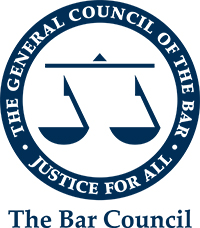*/
What should barristers be doing on the personal finance front ahead of the end of the tax year on 5 April? Julian Morgan of Fleet Street Wealth answers your questions
Certain allowances are tax year dependent. ISAs, for example, cannot be carried over into the following tax year. Pensions work slightly differently as there is the ability to also make use of some of the unused annual allowances from previous tax years but conditions apply and these are likely to be scrapped in the future.
Monies within pensions and ISAs grow tax free and investing in pensions helps to mitigate annual Income Tax bills. HMRC also contributes money on top of individuals’ own regular or lump sum payments. These reliefs and incentives help funds grow quicker than other investments.
Other annual allowances include the use of the Capital Gains Tax Allowance (CGTA), offshore investments allowances and reliefs accessed via Venture Capital Trusts (VCTs) and Enterprise Investment Schemes (EISs).
One should also consider children’s Junior ISAs and pensions and also the setting up of a non-working spouse pension so that their Personal Allowance can be used in retirement.
The most obvious difference is the tax treatment and the transition from the ‘cash basis’ to the ‘true and fair basis’.
Income can also fluctuate significantly and they often invest lump sums rather than regularly. Other than the Judicial Pension Schemes and some income protection benefits set up via chambers, no occupational benefits exist and therefore the Bar need to provide for themselves. The combination of all this means it’s vital they have good financial advice.
Barristers also work long hours and some of the life policies (eg income protection) are not suitable because the life company have restrictions on the numbers of working hours. It is therefore crucial that one understands the contracts one takes out and their likely suitability.
Finally, the Bar’s unpredictable earnings can make it more difficult to secure mortgage and short-term debt finance.
The better our understanding of a client, the better the advice and the more efficient the delivery, so we will research a client’s individual situation thoroughly at outset.
As part of this process, we go through a fact find, an expenses schedule and a risk form. We marry up the information from external providers with the information we have from the client and, taking into account the client’s aspirations, we assess what is working well, what needs to be changed and what needs to be set up. Those recommendations are then summarised to the client.
We are a Chartered firm and remain independent at a time when increased regulation has encouraged firms to limit the scope of their advice to the products of a far smaller pool of companies or maybe just one and it is questionable that that will remain the best company for the full term of your policy.
Most firms today charge initial fees based upon the amount being invested. We think this unjustifiable since the paperwork for an investment of £100,000 is the same for that of £10,000. Our initial fees are set fees and we also cap our ongoing fees which makes us particularly attractive for larger accounts.
We have a sound knowledge of the Bar and the profession. We have had a close relationship with the Bar for over 25 years, are a Bar Council partner and are known in most sets in London.
I would argue that the quality and technical competence of the people within the firm at all levels is unusually high. We are particularly careful about the individuals we take on. We are one of the few firms to have a Graduate Training Programme that takes five years to complete. Staff are all extremely articulate, service orientated and wedded to the idea of providing clear, structured, ethical financial advice to our clients.



Fleet Street Wealth is a trading style of Fleet Street Financial Ltd which is authorised and regulated by the Financial Conduct Authority.
Certain allowances are tax year dependent. ISAs, for example, cannot be carried over into the following tax year. Pensions work slightly differently as there is the ability to also make use of some of the unused annual allowances from previous tax years but conditions apply and these are likely to be scrapped in the future.
Monies within pensions and ISAs grow tax free and investing in pensions helps to mitigate annual Income Tax bills. HMRC also contributes money on top of individuals’ own regular or lump sum payments. These reliefs and incentives help funds grow quicker than other investments.
Other annual allowances include the use of the Capital Gains Tax Allowance (CGTA), offshore investments allowances and reliefs accessed via Venture Capital Trusts (VCTs) and Enterprise Investment Schemes (EISs).
One should also consider children’s Junior ISAs and pensions and also the setting up of a non-working spouse pension so that their Personal Allowance can be used in retirement.
The most obvious difference is the tax treatment and the transition from the ‘cash basis’ to the ‘true and fair basis’.
Income can also fluctuate significantly and they often invest lump sums rather than regularly. Other than the Judicial Pension Schemes and some income protection benefits set up via chambers, no occupational benefits exist and therefore the Bar need to provide for themselves. The combination of all this means it’s vital they have good financial advice.
Barristers also work long hours and some of the life policies (eg income protection) are not suitable because the life company have restrictions on the numbers of working hours. It is therefore crucial that one understands the contracts one takes out and their likely suitability.
Finally, the Bar’s unpredictable earnings can make it more difficult to secure mortgage and short-term debt finance.
The better our understanding of a client, the better the advice and the more efficient the delivery, so we will research a client’s individual situation thoroughly at outset.
As part of this process, we go through a fact find, an expenses schedule and a risk form. We marry up the information from external providers with the information we have from the client and, taking into account the client’s aspirations, we assess what is working well, what needs to be changed and what needs to be set up. Those recommendations are then summarised to the client.
We are a Chartered firm and remain independent at a time when increased regulation has encouraged firms to limit the scope of their advice to the products of a far smaller pool of companies or maybe just one and it is questionable that that will remain the best company for the full term of your policy.
Most firms today charge initial fees based upon the amount being invested. We think this unjustifiable since the paperwork for an investment of £100,000 is the same for that of £10,000. Our initial fees are set fees and we also cap our ongoing fees which makes us particularly attractive for larger accounts.
We have a sound knowledge of the Bar and the profession. We have had a close relationship with the Bar for over 25 years, are a Bar Council partner and are known in most sets in London.
I would argue that the quality and technical competence of the people within the firm at all levels is unusually high. We are particularly careful about the individuals we take on. We are one of the few firms to have a Graduate Training Programme that takes five years to complete. Staff are all extremely articulate, service orientated and wedded to the idea of providing clear, structured, ethical financial advice to our clients.



Fleet Street Wealth is a trading style of Fleet Street Financial Ltd which is authorised and regulated by the Financial Conduct Authority.
What should barristers be doing on the personal finance front ahead of the end of the tax year on 5 April? Julian Morgan of Fleet Street Wealth answers your questions


The Bar Council is ready to support a turn to the efficiencies that will make a difference
By Louise Crush of Westgate Wealth Management
Marie Law, Director of Toxicology at AlphaBiolabs, examines the latest ONS data on drug misuse and its implications for toxicology testing in family law cases
An interview with Rob Wagg, CEO of New Park Court Chambers
What meaningful steps can you take in 2026 to advance your legal career? asks Thomas Cowan of St Pauls Chambers
Marie Law, Director of Toxicology at AlphaBiolabs, explains why drugs may appear in test results, despite the donor denying use of them
Ever wondered what a pupillage is like at the CPS? This Q and A provides an insight into the training, experience and next steps
The appointments of 96 new King’s Counsel (also known as silk) are announced today
Ready for the new way to do tax returns? David Southern KC continues his series explaining the impact on barristers. In part 2, a worked example shows the specific practicalities of adapting to the new system
Resolution of the criminal justice crisis does not lie in reheating old ideas that have been roundly rejected before, say Ed Vickers KC, Faras Baloch and Katie Bacon
With pupillage application season under way, Laura Wright reflects on her route to ‘tech barrister’ and offers advice for those aiming at a career at the Bar